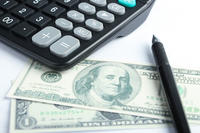How would you feel if you suddenly faced an unexpected $800 bill? On average, that's exactly what we're dealing with this month, as December's brightly wrapped packages give way to January's bill-stuffed mailboxes.
While our family and friends certainly appreciate our holiday generosity, many of us will rethink those impulse gift purchases as we try to juggle the age-old issue of -money in- versus-money-out at this time of year.
If that's giving you a financial headache, don't panic. All you need to cure your holiday shopping hangover are a few first-aid techniques -- and the good news is that repairing personal finances is much like treating a physical injury: the sooner you start first aid, the faster you'll heal.
So, if you're trying to balance credit card bills and other debts after the holidays, take a deep breath, and open up those credit card and loan statements. It's essential to make sure that each of the charges is valid, so read the statements carefully and compare each item against your receipts.
Sit down and list all of the debts, along with their minimum monthly payments and their interest rates, and decide how much extra money is in your budget to split between the bills.
Then apply these five FIRST aid steps:
- Figure out which debts carry the highest interest rates. It makes sense that paying off the high-rate debts first helps you reduce your total debt faster. For example, if you have three credit card bills coming in, and you have $500 available to pay them, pay only the minimum payment on the two with the lowest interest rates -- and put the rest down on the card with the highest interest rate. As soon as the card with the highest interest rate is paid off, you can switch to the one with the next-highest interest rate.
- Ice your credit cards: Commit yourself to a reasonable spending plan to free up money to pay down your debts as quickly as possible (store the cards in a block of ice in the freezer if you have to). It's essential that you don?t work at reducing your debts just to build them back up again with new spending.
- Return any unused items wherever store policy allows.
- Second-guess yourself: When you reach for your credit card, ask yourself whether or not you really need the item -- and whether you can carry on without it.
- Transfer debts with high interest rates, such as department store credit card balances, to lower interest rate debts such as other credit cards (if they allow balance transfers) or lines of credit. Talk to your financial institution about a debt consolidation loan or line of credit at a low rate of interest -- on the condition that you cancel all but one or two of your credit cards.
Holiday shopping hangovers are an unfortunate result of good intentions and generous hearts. But with a little effort, these headaches can be cured!
Stanley J. Kershman is The Debt Doctor. A leading authority on solving financial disasters, he has been helping people get out of debt for more than 25 years. He's also the author of "Put Your Debt on a Diet: A Step-by-Step Guide to Financial Fitness" (Pepper Pike Press), a practical handbook that walks you through the process of improving your money management skills. For free copies of Stanley's handy budgeting worksheets, visit www.debtonadiet.com.











